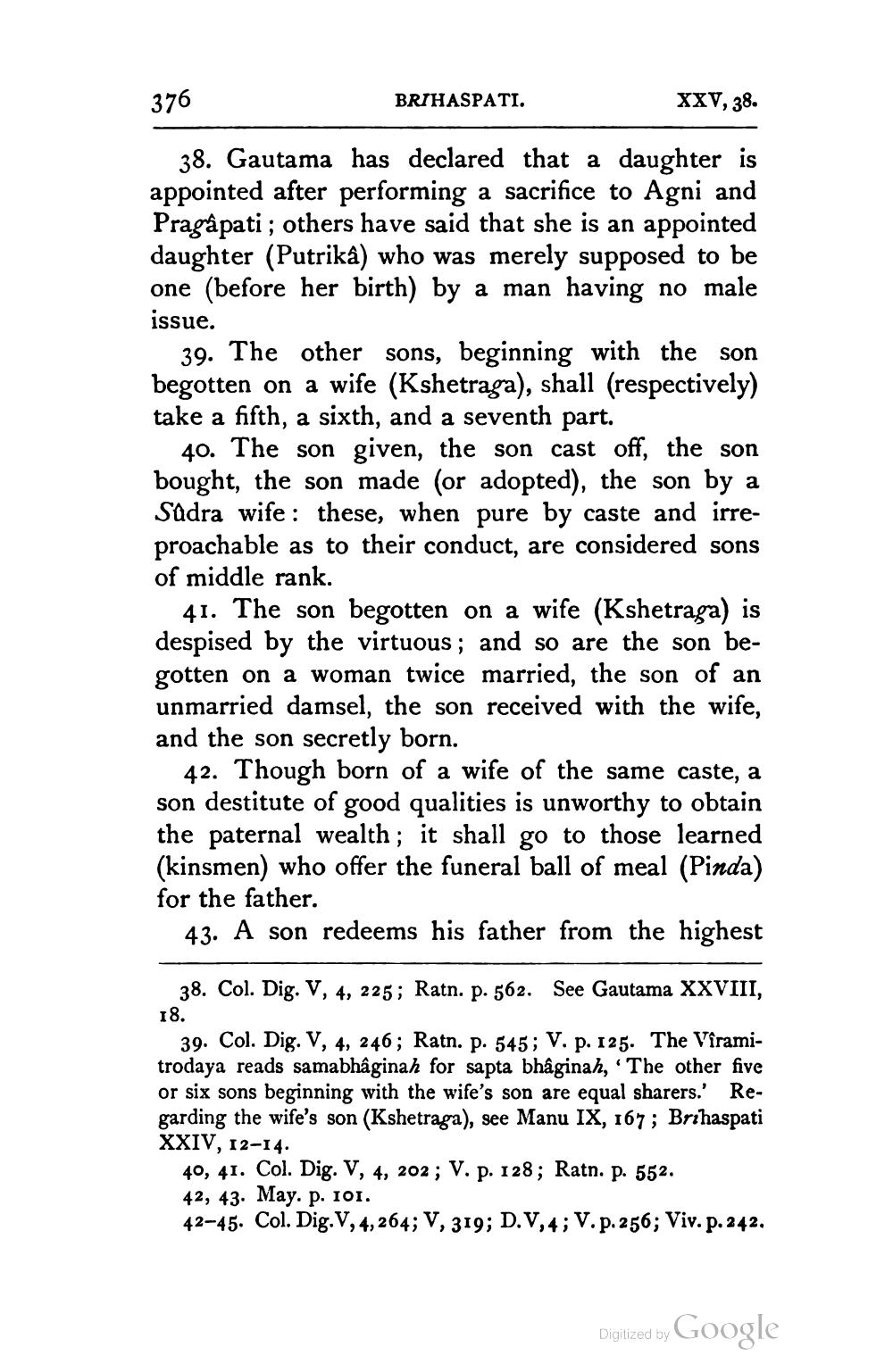________________
376
BRIHASPATI.
XXV, 38.
38. Gautama has declared that a daughter is appointed after performing a sacrifice to Agni and Pragâpati; others have said that she is an appointed daughter (Putrikå) who was merely supposed to be one (before her birth) by a man having no male issue.
39. The other sons, beginning with the son begotten on a wife (Kshetraga), shall (respectively) take a fifth, a sixth, and a seventh part.
40. The son given, the son cast off, the son bought, the son made (or adopted), the son by a Sadra wife: these, when pure by caste and irreproachable as to their conduct, are considered sons of middle rank.
41. The son begotten on a wife (Kshetraga) is despised by the virtuous; and so are the son begotten on a woman twice married, the son of an unmarried damsel, the son received with the wife, and the son secretly born.
42. Though born of a wife of the same caste, a son destitute of good qualities is unworthy to obtain the paternal wealth; it shall go to those learned (kinsmen) who offer the funeral ball of meal (Pinda) for the father.
43. A son redeems his father from the highest
38. Col. Dig. V, 4, 225; Ratn. p. 562. See Gautama XXVIII, 18.
39. Col. Dig. V, 4, 246; Ratn. p. 545; V. p. 125. The Vîramitrodaya reads samabhâginah for sapta bhâginah, 'The other five or six sons beginning with the wife's son are equal sharers.' Regarding the wife's son (Kshetraga), see Manu IX, 167; Brihaspati XXIV, 12-14.
40, 41. Col. Dig. V, 4, 202; V. p. 128; Ratn. P. 552. 42, 43. May. p. 101. 42-45. Col. Dig. V, 4,264; V, 319; D.V,4;V. p. 256; Viv. p. 242.
Digitized by Google




